Politics & Government
City council candidates debate traffic, budget, and housing
Published
2 months agoon
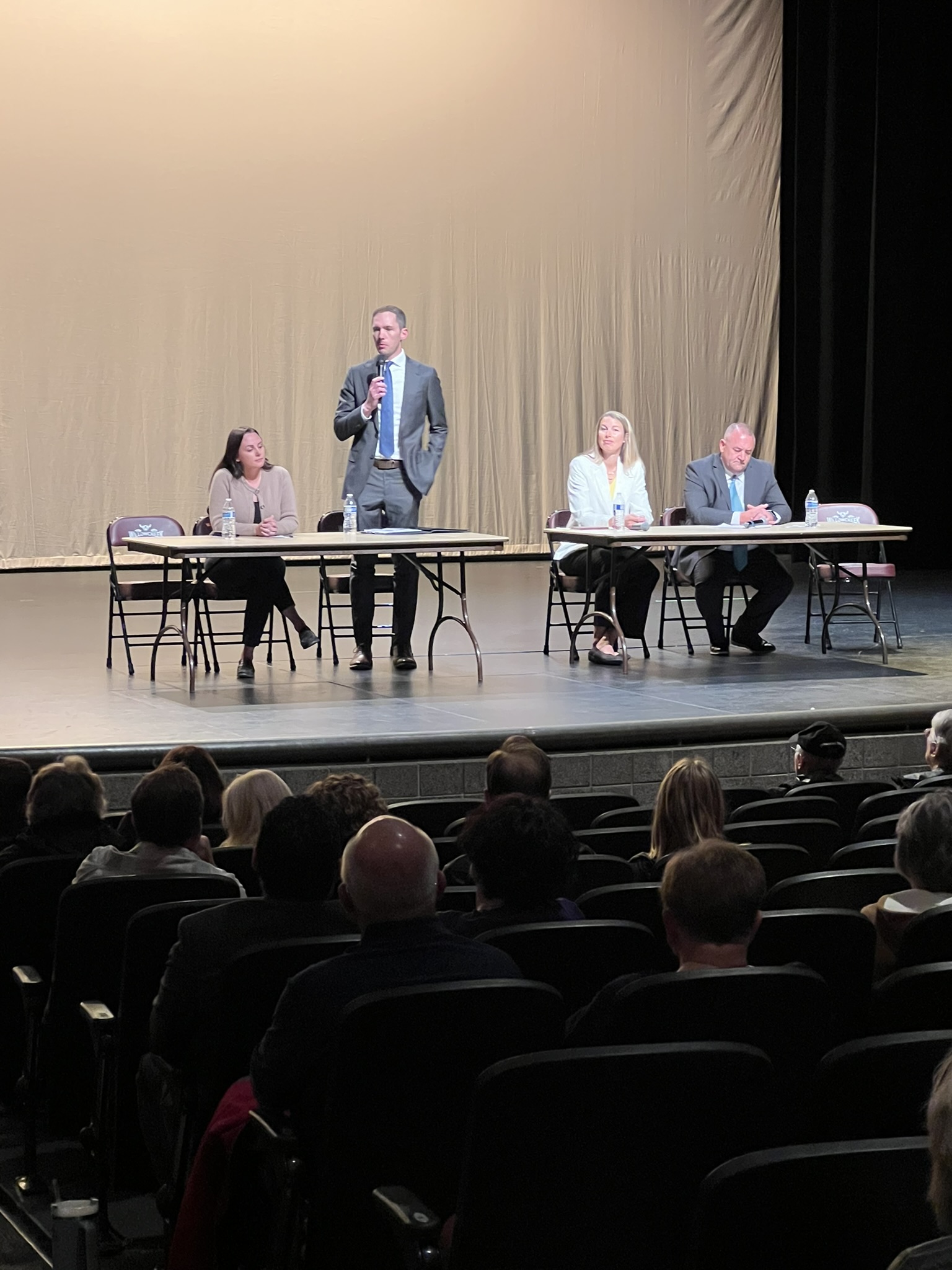
Matt Hemmert | Lehi Free Press
On October 15, all four candidates for Lehi City council met in the final debate sponsored by the Lehi Free Press and Point of the Mountain Chamber of Commerce. Sally Francom, publisher of the Lehi Free Press, led the candidates through questions focused on housing, traffic, funding, and other city priorities. Debate questions were gathered from the public and the Lehi Free Press editorial board.
Candidates are listed alphabetically by last name.
Rachel Freeman
Rachel Freeman likened collaboration in city governance to patient care: success depends on communication, respect, and give and take. She said the most important work happens before council votes—through listening to residents, discussing issues openly, and finding balanced, community-driven solutions. Her campaign, she noted, is rooted in knocking doors and encouraging residents to bring their concerns forward.
Traffic, she said, remains the number one issue raised by residents. Freeman welcomed a forthcoming Mountainland Association of Governments (MAG) traffic study that will analyze east-west movement across northern Utah County, calling it an important step toward long-term planning. She said she has built relationships with state and regional transportation officials and believes that close collaboration among Lehi, MAG, UDOT, and the legislature will be key to easing congestion.
On intercity cooperation, Freeman urged a residents-first stance in discussions with Saratoga Springs regarding east-west corridors. While acknowledging the need for compromise, she said Lehi’s council must protect local interests as regional populations grow toward half a million west of Lehi. She also expressed support for future projects like the Vineyard Connector and improved cross-county routes to alleviate pressure on I-15 and Pioneer Crossing.
Freeman shared skepticism that high density automatically creates affordable housing, pointing to rental rates near Lehi’s hospital as evidence that costs remain high. She said city leaders must protect property rights while ensuring any housing solutions truly serve local families rather than developers.
On city finances, Freeman said she supports maintaining a healthy rainy-day fund but wants to see more proactive use of surplus funds for safety and infrastructure, especially sidewalks near schools. She proposed creating a priority system for sidewalks based on neighborhood age, resident mobility, and proximity to schools to guide such investments.
Freeman backed equitable park development, noting west-side neighborhoods were lacking. She praised the new master parks plan but emphasized equity in future park funding and suggested that better use of PARC tax revenue could reduce the city’s $2 million annual deficit at the Legacy Center.
Freeman also supported hiring a civilian code enforcement officer to handle routine issues. She said communication with residents and transparency remain key areas where Lehi can improve. Freeman praised the city’s service-oriented police and fire departments as examples of effective leadership and dedication but urged continued focus on open dialogue between residents and city government.
Freeman’s closing statement: “I decided to run for city council because I think we need a strong voice for our residents. To me, it’s important that we prioritize infrastructure and make sure that we have safe streets and walking around as well as balance growth, so that we are smart with commercial versus low density housing and things like that. And also preserve open space. So really, to me, it’s about listening to the residents and you having a voice and putting people over politics. To me, that’s the most important thing, is that we as a city council can represent and be a voice for the residents.”
James Harrison
In responding the Francom’s question about collaborating with other council members, Harrison said he values respectful disagreement and cautioned that unanimous 5–0 votes can signal conformity rather than consensus. His diplomatic background, he argued, equips him to negotiate tough issues and find middle ground while keeping strong views.
Harrison said that Lehi’s gridlock is a regional problem, and urged tighter coordination with neighboring cities and state agencies and said leaders must stop being “reactionary.” He backed additional east-west capacity, naming 1900 South as a promising corridor, exploring at least one shoreline/over-the-lake crossing, and expanding east-west public transit. Rebuilding trust with Saratoga Springs, he said, is essential to advance shared solutions.
Harrison took a hard line on growth and housing mandates, saying cities must follow state law, but they can and should push back when needed. High-density housing, he argued, does not equal affordability, can crowd out commercial opportunities, and increases calls for police service. Preserving Lehi’s character means ensuring families can “graduate” from apartments or townhomes into single-family neighborhoods over time.
In discussing budgeting priorities, Harrison said the city should start with safety and basic infrastructure. He criticized underfunding the police department in the latest budget: the police chief received three of the nine requested officers, while he said the department remains about 30 officers short. He also said that missing sidewalks near schools are unacceptable when funds are spent on lower-priority projects.
Regarding parks and recreation, Harrison said west-side amenities lag badly and noted a shortage of baseball fields citywide. He proposed shifting the local PARC tax split from 70% for parks/30% for arts to 90% for parks, with a smaller share for cultural recipients. He argued that institutions can adjust their priorities, while neighborhoods need fields and playgrounds now.
For code enforcement, he called for a civilian, non-uniformed officer to handle routine issues, freeing police from minor disputes and reducing tension. On campaign finance, he said he rejects donations from developers to avoid any appearance of conflicts of interest. He praised Lehi’s nationally recognized police and fire leadership and said the city must be more strategic in protecting its identity and measuring success by residents’ quality of life.
Harrison’s closing statement: “This is my first time running for any office. I don’t want to serve you more than two terms. I’m a problem solver, and when I see a problem, I want to contribute to the solution. I want to see a resident-led community. I’m a limited-government conservative. I think government should get out of your life as much as possible. When it comes to safety, we need to act better. When it comes to keeping the identity of Lehi, keeping it a small town, so that we want to stay here, that’s my priority. I want to be able to help coordinate with the state. I want to be able to work with my fellow city council members and the mayor to be able to solve problems, to reduce the spending that’s not necessary, and then be able to keep Lehi priorities. So, I’m very appreciative of this opportunity.”
Emily Lockhart
Emily Lockhart, a four-year member of the Lehi City Planning Commission and vice president of corporate strategy for a steel company, said her professional background in cross-department collaboration shapes how she’d govern. She approaches land-use items “90% decided” before meetings, she said, reserving the final 10% for deliberation with colleagues to get to the right answer.
In speaking to the city’s traffic issues, Lockhart said she is currently working with area legislators on a bill to change how Utah funds growth—building roads and utilities before development rather than after. She also said she is seeking one-time state money to expand Pony Express Parkway beyond the currently funded configuration to five lanes, so Lehi doesn’t build too small. She backs connecting I-15 north of the Point of the Mountain to Mountain View Corridor to siphon current and future regional traffic away from local streets. On east-west traffic relief, she argued that fully funding Pony Express protects existing Lehi neighborhoods by channeling Saratoga Springs and Eagle Mountain traffic there.
On housing, Lockhart acknowledged cities are political subdivisions of the state and must comply with legislative mandates, but she argued Lehi should favor market-based solutions that do not expand city government. She cited a personal record of opposing high-density rezonings that conflict with the general plan and pledged to uphold property rights.
Discussing finances, Lockhart noted state statute dictates rainy-day reserves and said Lehi’s balance sits slightly above required thresholds—by roughly $5–6 million—which could be directed to needs while maintaining fiscal discipline and low taxes. She praised the city’s investment in parks, highlighting a new 27-acre west-side park, and urged leveraging county partnerships and federal grants to restore amenities such as the seasonal ice rink. Voter approval of the PARC tax, she said, signals residents’ support for more recreation options.
Lockhart rejected proposals for citizen code enforcers, saying enforcement should remain within the police department with proper staffing. On campaign finance, she said “my votes cannot be bought,” emphasizing a consistent, conservative voting record and a fiduciary duty to taxpayers.
Asked what Lehi does well, Lockhart pointed to public safety, noting national recognition for the city’s police and fire leadership. She called for expanded resources and mental-health support for first responders to sustain that success.
Lockhart’s closing statement: “I want to say thank you to the candidates here. It’s been an honor to be in this campaign with you guys and to share ideas and have good discussions. So, thank you for that. My four years on the planning commission have given me the experience to be effective on your [the public’s] behalf on day one. I have a record of upholding property rights and putting residents first. I have actively engaged with residents to listen to them as they voiced their concerns and have protected their homes and property. I am so excited to have the opportunity to continue serving you in a larger capacity. Right now, I’m limited as a planning commissioner because I’m simply one of five who recommend to the council, and I would love to actively engage on your behalf in that capacity as a council member and deliver results for you. And that’s what I’m going to do.”
Jared Peterson
Speaking of teamwork and governing style, Peterson said disagreements among council members are healthy and often necessary to reach the best decision for residents. Unlike planning commissioners—who face strict limits on pre-meeting discussions, council members can visit project sites and speak with applicants and neighbors, which he believes improves outcomes. Decisions, he added, must account for impacts not just today, but for multiple generations.
Peterson has served on the Lehi Planning Commission for seven years.
He discussed traffic and spillover congestion citywide, citing bottlenecks on 700 South, Main Street, 300 West, and 1500 North as drivers divert through neighborhoods. He said he has met with state transportation leaders and backs forthcoming regional studies but urged planning much further out to avoid the reactionary cycle that has plagued past projects. On new east-west traffic capacity, he voiced support for a north shore freeway concept under environmental review, arguing it would route regional traffic around Lehi neighborhoods. He emphasized maintaining constructive ties with neighboring cities and promising to work toward mutually acceptable alignments for a north shore solution.
Addressing housing, Peterson distinguished “attainable” from “affordable,” warning that high density alone does not solve costs or community needs. He supports pushing back on state mandates where appropriate while exploring locally driven, collaborative tools that help families buy and stay in Lehi.
Regarding a question about the city’s rainy-day fund and fiscal stewardship, Peterson supports preserving the city’s rainy-day fund for true emergencies such as wildfires or earthquakes. While open to reallocating modest surpluses, Peterson insisted reserves remain a core priority. Budget choices, he added, should fund front-line public safety services first.
On parks and recreation, Peterson listed priorities including advancing Mellor-Rhodes Park to add much-needed baseball fields, modernizing the Legacy Center, investing in the Senior Center, and leveraging new city control at Willow Park for future open space. He praised Family Park, noting early skepticism gave way to support after seeing it in use.
For code enforcement, Peterson favored dedicated civilian staffing—not just uniformed officers—given the training load and complexity of the municipal code. Pointing out positives about Lehi, he noted Lehi’s nationally recognized public safety, the Traverse Mountain trail system, and top-tier bond ratings, while urging more concrete, two-way problem-solving with residents to turn listening into action.
Peterson’s closing statement: “I grew up here. This is a place that I love. This is the place where I raised my family. It’s a place that I love to serve. It’s a place where I’ve had great opportunities in my career, with our family, and serving the community, and that’s what I’m looking to do. When Lehi really started expanding and grew as a city, it was sometimes hard to watch. When I graduated from Lehi High School there were 10,000 people here. We’re over 90,000 now, that’s just a tremendous amount of growth. But from that growth have come great things. I have lifelong friends that I have made because of their growth. There’s job creation that wasn’t here before. There’s industry here that wasn’t here before. So those are great things. So, let’s preserve the great city of Lehi. It was found in late 90’s—the secret was out, and then the growth started. And here we are. It’s an amazing place. We need to continue to be smart about our growth. We need to look to the future as we look to the past and build on the great things that Lehi has for our residents.”
For Lehi City Council, none of the candidates are incumbents. Voters will choose two candidates.The entire debate can be viewed by clicking here or navigating to the Lehi Free Press’ Facebook page. The General Election will be held on Tuesday, November 4. Ballots may be returned by mail, but must be received by the Utah County Clerk’s office on or before November 4. Otherwise, voters may vote in person on November 4or deposit ballots at the official drop box located on the south side of the Lehi Public Safety Building until 8 p.m. on November 4.
In this story, AI was used to generate transcripts and summarize direct quotes. Transcripts and summaries were checked to ensure they met the Lehi Free Press’ ethical and accuracy standards.

You may like
-


Emily Lockhart to fill open seat on Lehi City Council
-
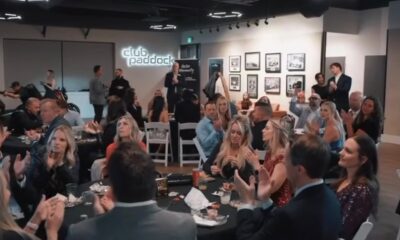

“Passion into purpose”: Local supercar owners donate over $60k to Make-A-Wish
-


United Way of Utah County brings Christmas hope to hundreds of families
-


QR codes add modern convenience to Lehi’s historical markers
-


The Ruth’s “A Christmas Carol” a magical holiday tale
-
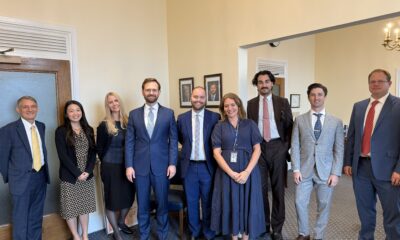

Local child protection group takes its fight against big tech to the FTC
-
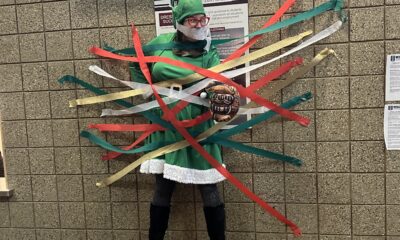

Willowcreek administrators spark holiday cheer for students
-


Teen entrepreneurs showcase innovation at Christmas market
-
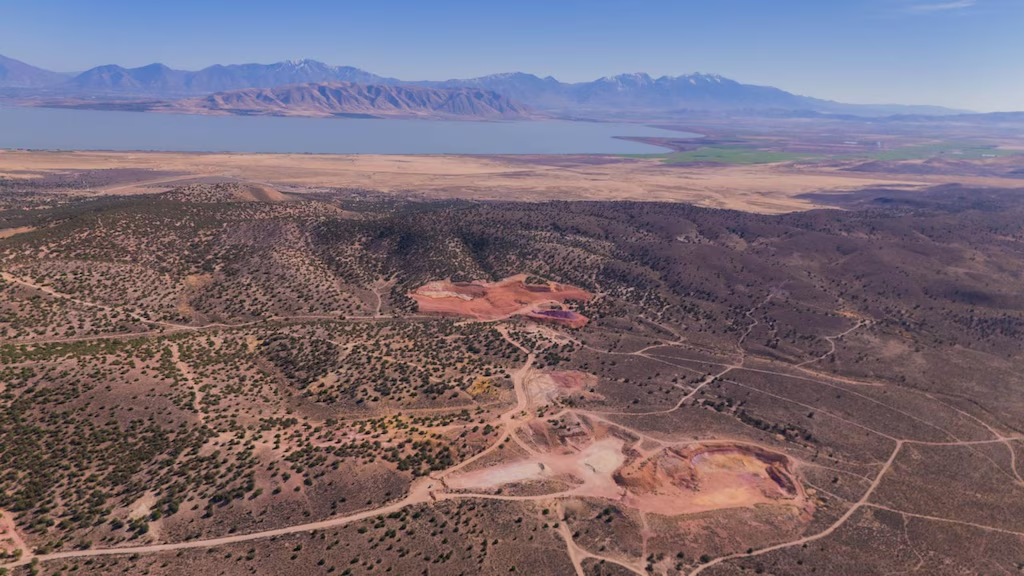

Why a new mineral find near Utah Lake is drawing national attention
-
Aspen Peaks School Board approves budget, launches staff searches and boundary study

